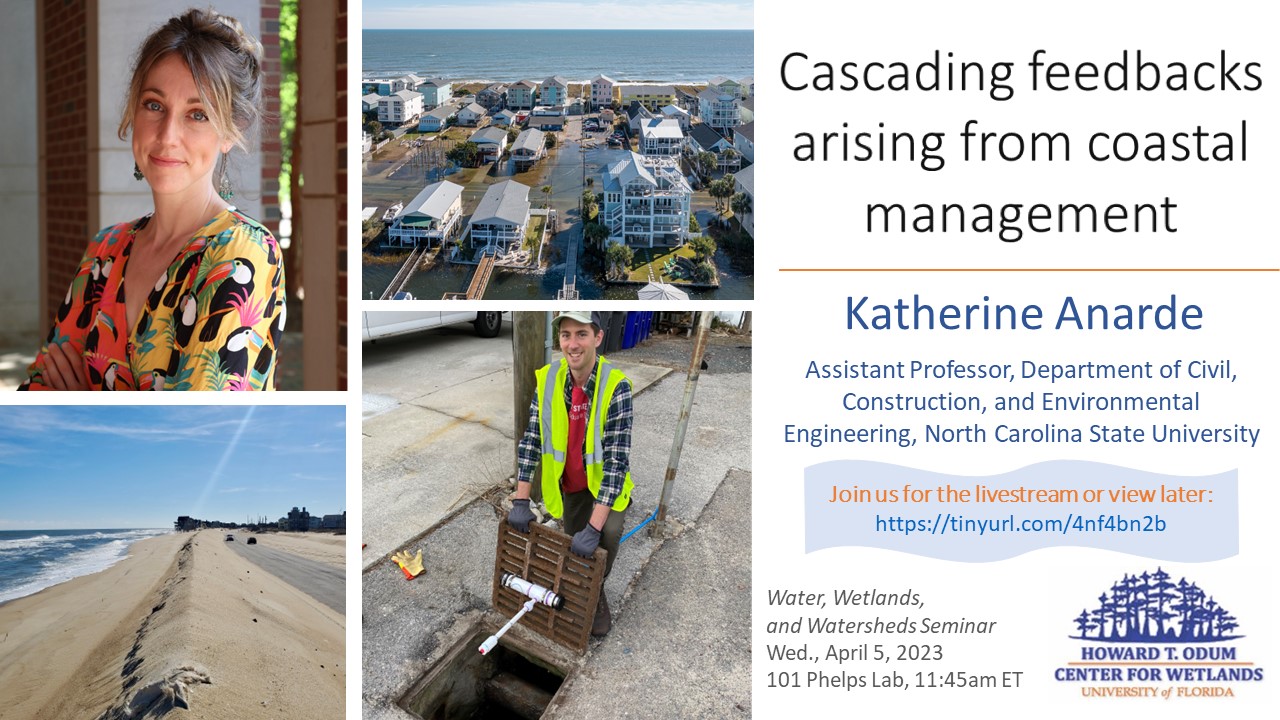
Katherine Anarde, Assistant Professor, Department of Civil, Construction, and Environmental Engineering, North Carolina State University
Join us for the live stream April 5th, 11:45am EST: https://youtube.com/live/mWxHZRHtydc?feature=share
(Please visit our YouTube channel main page for the stream if there are any issues with the direct link.)
ABSTRACT
Developed barriers are tightly-coupled systems driven by feedbacks between natural processes and human actions to maintain development. In this talk, I will use a new exploratory model framework — CASCADE — to explore how barrier evolution is altered by coastal management activities. I will show that the effects of dune and beach management strategies employed in the wake of extreme storms cascade through decades to alter the evolution of barriers, inadvertently inhibiting their resilience to sea level rise and storms. The possible sequences of states for a developed barrier system — including what happens after management ends — depend on internal system dynamics (dune growth and recovery), initial conditions (barrier width and elevation), exogenous conditions (storm sequence), and on the alongshore combinations of management strategies. I will then discuss an impact of these cascading feedbacks — chronic “sunny-day” flooding of low-lying back-barrier communities outside of extreme storms — and how communities in North Carolina are impacted by, and working to adapt to, these chronic floods.
BIO
Dr. Katherine Anarde is an Assistant Professor in the Department of Civil, Construction, and Environmental Engineering at North Carolina State University. She is a coastal engineer and geomorphologist that combines observational and numerical approaches to investigate coastal hazards. Her past research focused on storm impacts to sandy coastlines, with projects measuring ocean waves during hurricane attacks and modeling of future infrastructure vulnerability. Anarde’s current research is largely interdisciplinary and focuses on climate impacts to coastal communities. This body of work includes projects investigating household level impacts from flooding due to sea-level rise, as well as modeling of how humans alter natural barrier evolution over decadal timescales.
Anarde received a B.A. in Geology from the University of Colorado Boulder in 2011. She then worked as an Environmental Consultant at ENVIRON International Corp. before returning for a Ph.D. in Civil and Environmental Engineering at Rice University. Prior to joining NC State in 2021, she was a Postdoctoral Researcher in the Coastal Environmental Change Lab at the University of North Carolina at Chapel Hill and Project Manager for the Collaboratory for Coastal Adaptation over Space and Time (C-CoAST.)
POSTCARD
